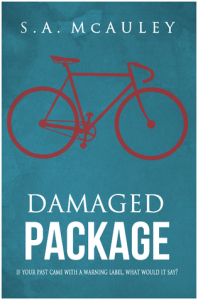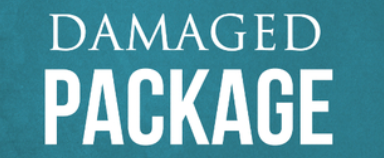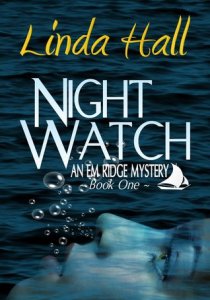 I bought an ecopy of S. A. McAuley‘s book, Damaged Packages.
I bought an ecopy of S. A. McAuley‘s book, Damaged Packages.
Description from Goodreads:
Forced into early retirement from his career as a SWAT officer for the city of Detroit, James Deacon knew that when he failed it would be a fall of epic proportions. He’s been living life by the tips of his fingers for over twenty years, and his new gig organizing a group of misfit military types into a functioning team—including his reluctant ex-fiancée—won’t return him to stable ground anytime soon.
Trevor Barrow has been on the move for the last seven years—hitting the road when relationships became too real or too much work. He’s home now, working in the hazardous world of bike messengers in the Motor City, and the only one of his eight siblings who knows he’s returned is his sister Cat. It’s not as if reconnecting with them matters anyway, because it’s likely he’ll be gone again soon.
Both men are lugging some heavy baggage, but when they chance upon each other in a dive bar it’s hard to deny their flaws are more like symbiotic quirks. Trevor’s backpedaling instincts and Deacon’s dance-dance party past may just be intersecting at a time when things are about to get explosive in Detroit.
Review:
Not bad, but nothing exceptional either. Deacon was incredibly sweet. There is something really emotionally resonating in seeing a man just want to make someone else happy. It pushes a lot of my happy buttons. I also liked that he was an older man. I liked that Trav wasn’t brainless. He was a smart guy. I appreciated that. The sex was pretty good too.
But the book is full of clichés. Full of them. It’s all pretty predictable, and everything after about 75% is 100% predictable. Worst of all it has the dreaded, ‘he didn’t know what but something made this man/situation/feeling/etc different.’ NO. That is NEVER enough to explain someone’s uncharacteristic feelings about someone or something. NEVER. It’s as bad as, if not worse than, insta-love. Which to be fair, this isn’t quite (pretty close though).
Plus, a lot of it just didn’t hold together very well. For example, The initial event in which Deacon was supposed to have come to Hank’s attention didn’t appear to be one in which a SWAT team would have been needed. Pretty sure the normal police could have handled that. Then, for the whole book it’s hinted that Deacon was working for Hank to investigate corporate espionage, but it felt a bit over the top that he hires ex SWAT and soldiers for this. Then suddenly at the end, we’re dealing with terrorists instead. But only for about 10 pages, it was all resolved in an instant. Then there’s the fact that Deacon’s ex just happens to work there too. Everything just barely hangs together. It does, if you don’t look too closely at it, but just barely.
Lastly, a personal irritant, as someone who worked in Child Abuse & Neglect investigations for several years: if by some manner Trav did become emancipated form his mother at 16, which it takes a lot to do, all her other children should have been removed as well. Think on it. The court is willing to declare, and thereby be accountable if something happens to him, that his mother is so unfit her 16 year old is better off caring for himself. Would they then leave several other children ranging from infant to 9 years old in her drug-addled care? I think not.
The writing, however is fine and though the plot is shaky a lot of the men relating to one another is touching in it’s own occasionally sappy way. The book is a solid, middle of he road read.



